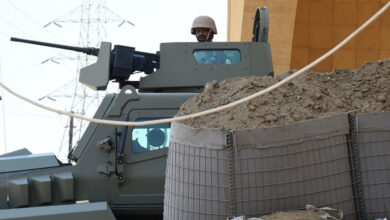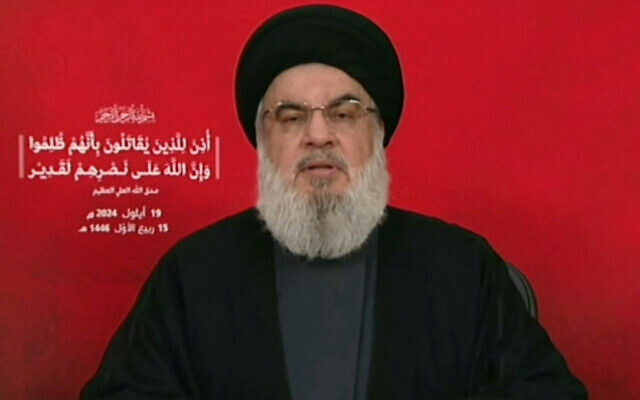Israel Launches Strikes On Military Sites Throughout Iran, Weeks After Missile Attack

- Military jets operate freely over skies of Islamic Republic for several hours, with army saying it hit air defenses as well as key missile and drone sites, in response to ‘months of attacks’
Israel launched its long-awaited retaliatory strike against Iran early Saturday, weeks after the Islamic Republic’s massive ballistic missile barrage on the country, with the military saying the “precise strikes” by the Israeli Air Force targeted strategic military sites — specifically drone and ballistic missile manufacturing and launch sites, as well as air defense batteries.
Reports of explosions near Tehran began to emerge around 2:15 a.m. local time, with the Israel Defense Forces quickly releasing a statement confirming that it was attacking, in response to “months of continuous attacks from the Iranian regime against the State of Israel.”
The strikes were carried out in several waves over the course of several hours, in various areas of Iran, with the Islamic Republic closing its airspace for the duration and seemingly showing little ability to counter the assault. Strikes were reported in the Tehran, Karaj, Isfahan and Shiraz areas.
The first wave of attacks apparently targeted Iran’s air defense capabilities, both to ensure the IDF’s freedom of operations during Saturday’s sorties, and to lay the ground for further strikes, should Iran retaliate. As the campaign was underway, Syrian state media reported that Israel struck several military sites in the south and center of the country, action possibly taken to enable the IAF to operate more freely in Iran.
The next waves hit drone and ballistic missile manufacturing sites — those used in direct Iranian attacks on Israel on April 14 and October 1 — as well as sites used to launch such weapons.

The Israeli military said at 6 a.m. that the assault had been completed, with “all goals achieved” and all aircraft returning safely home. It dubbed the campaign “Days of Repentance,” a reference to the recent Yom Kippur holiday. It said dozens of IAF aircraft, including fighter jets, refuelers and spy planes, participated in the “complex” operation some 1,600 kilometers from Israel.
The military said the strikes had given the IAF “wider freedom of aerial action in Iran,” and that it had a broad bank of targets that it could hit in the future if required.
“The regime in Iran and its proxies in the region have been relentlessly attacking Israel since October 7th –- on seven fronts –- including direct attacks from Iranian soil,” the IDF said. “Like every other sovereign country in the world, the State of Israel has the right and the duty to respond.”
Following the strikes, the IDF said it was holding an assessment on a potential Iranian response to the attack, but as of now, there were no changes to guidelines for civilians. The IDF added that its “defensive and offensive capabilities are fully mobilized,” and that it “will do whatever necessary to defend the State of Israel and the people of Israel.”
“Iran struck Israel twice… and has paid the price for that,” IDF Spokesman Rear Adm. Daniel Hagari said in a statement. “We are focused on the goals of the war in Gaza and Lebanon. It is Iran that continues to push for a wide regional escalation.
TIMES OF ISRAEL





